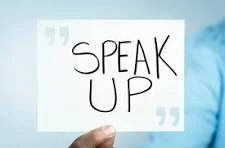The Courage to Be Seen: Finding Strength in Self-Advocacy
Throughout my journey in the education system, I've traveled with my disabilities, which are not always visible. This, of course, was both isolating and exhausting. However, alongside mentors, supportive teachers, peers, and adults, learning the tools of self-advocacy strengthened my desire and confidence to create a diverse abundance of opportunities and experiences for myself.
One of the most challenging parts of my experience with invisible disabilities was coming to the understanding that to be successful, I need to be a consistent self-advocate in ways others may not understand. Whether that be reaching out to professors to request deadline extensions, receiving clarification on instructions or tasks, or confirming that I am on the right track. That same self-advocacy has followed me beyond the classroom and into the job search process. I self-advocate when requesting support in preparation for interviews, during the onboarding process for a new job, or in early discussions with potential employers. I've had to be deliberate about expressing my needs, finding that balance between remaining professional and positioning myself for success.
Every time I hit send on one of those emails or speak up during those conversations, there's a lingering fear and internal discourse I've had countless times:
"If I ask for an extension now, is there going to be a chance I will be denied it in the future?"
"What happens when this professor doesn't believe me?"
"If I ask my higher-ups my questions about elements of this hiring form, will I come off as uneducated or slow?"
Because when your disability is invisible, you live in this awkward space where your struggles are very real but not always seen and validated by others. It can feel like you're being trapped in a glass box—people can see you, but not what's going on under the surface. What others may not see, and what I like to remind myself when I need encouragement to advocate, is as follows:
My need for more structure enables me to manage deadlines effectively, demonstrating my hard work and thorough approach.
My approach to processing information is a colorful and creative manifestation of ideas, solutions, or understanding that often provides a unique perspective.
My need for clarification enables me to maintain my thorough and diligent work ethic by ensuring I follow instructions or tasks correctly.
While I no longer feel embarrassed or ashamed about being my own best advocate, it takes continuous effort and support to maintain that position. Facing and working through the multi-faceted, complicated, and ever-evolving relationship between myself and society’s expectations, stigmas, and standards around neurodivergence and disabilities is constant. Still, it is something we all have to do to gain the confidence to be self-advocates for the tools and support we need to achieve the success we deserve.
I have discovered that standing up for yourself is always a good thing. Doing everything you can to ensure your success is always better than remaining silent and feeling confined by that glass. Speaking up for yourself is a strength. It indicates that you are aware of your own needs. Speaking up is evidence that you are advocating for your future successes. Furthermore, it demonstrates that you have chosen to pursue the best opportunity for success.
Your human experience is always worthy and deserving of self-advocacy. With this knowledge in mind, continue to push forward, keep advocating, and remain confident in speaking up for your needs.


